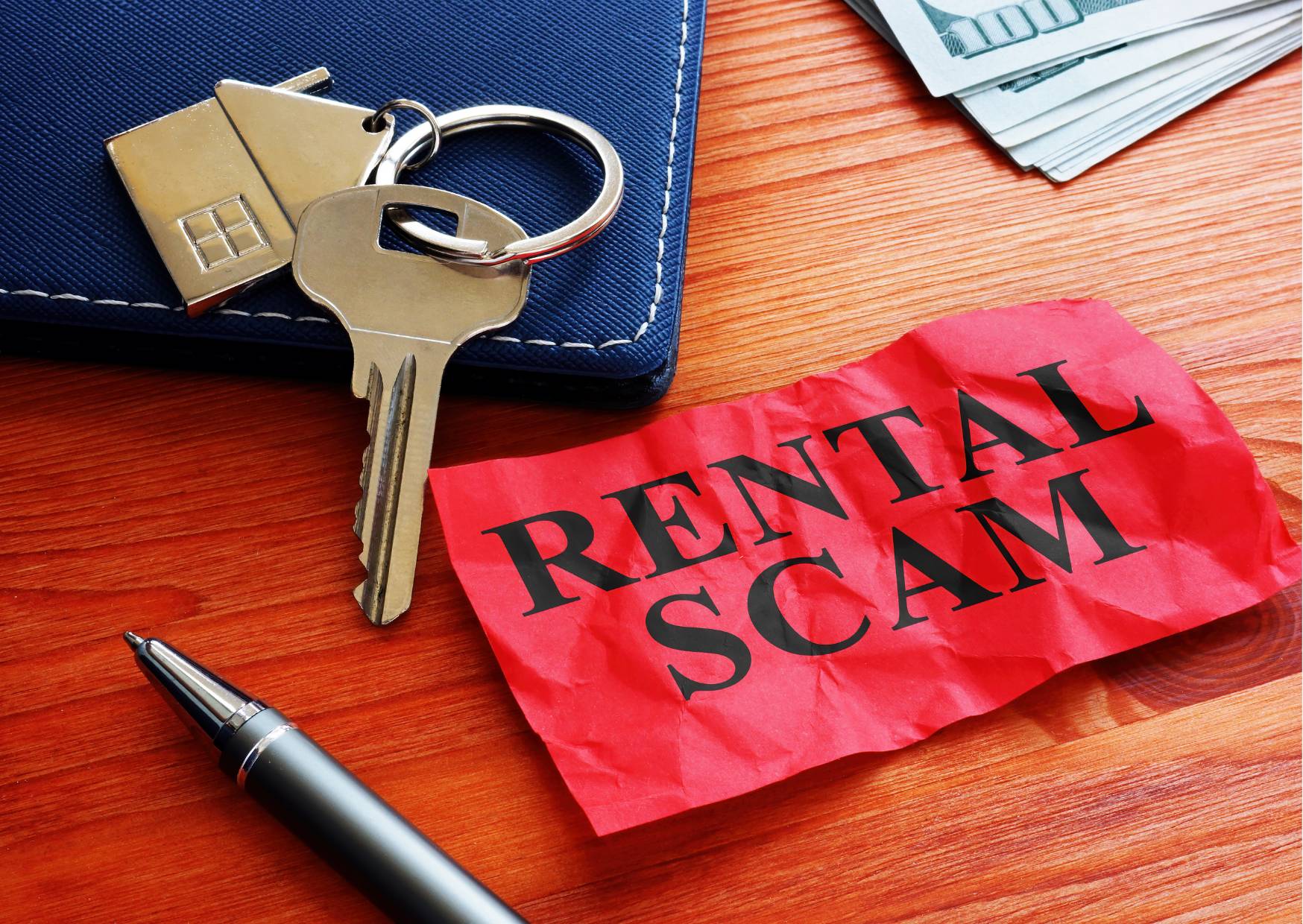Rental Contracts Explained for Beginners: What to Expect
What you need to look out for in your new rental agreement.
Federica
When renting an accommodation abroad, the most important thing you’ll need to do is sign the rental contract, a crucial document that legally holds you and the landlord responsible and also protects you.
However, the often-complex terminology and legal jargon used in lease agreements can be overwhelming. It’s also possible that the contract is in a different language when you’re renting abroad. This is why it’s essential that you never go into a verbal agreement with a landlord. Take your time to read and understand exactly what you’re in for.
To help you out, this article will go into detail about what a rental contract should contain. This will help ensure that there're no misunderstandings between you and your landlord. So, let’s get started!
What's in a rental contract?

The rental contract is a legal document that includes important information regarding what the accommodation includes, your responsibilities and rights, and potential penalties for late payments, early leave, or destruction of property.
A rental contract may also be referred to as a rental agreement, tenancy agreement, lease agreement, etc.
Although rental contracts can somewhat vary from country to country, most will contain and require similar components:
- Basic information about the tenant(s)
- Contact details of the tenant and the landlord
- Property description, including address, features, and inventory (e.g. furniture or utilities)
- Rental or contract duration
- Rent details, such as security deposit, payment due date, and bank details
- Your terms, responsibilities, and rights
- Rules and terms for leasing the rental property
- Clauses for terminating or extending the contract
- Dictionary of terms and jargon
Some tenants, such as students, will likely require a guarantor who’ll be legally responsible for payments and penalties on behalf of the tenant. Some other optional clauses could include rules for having a pet, smoking, or running a freelancing business from your residence.
Have a look at sample rental contracts in different languages.
Here’re some things you should watch out for in your rental contract:
1. Note the type of rental contract you’re signing
There’re 2 types of rental contracts. If you’re going to be staying for a specific time with a specific end date, you will typically sign a fixed-period contract. If your plans aren’t set in stone, can sign or ask for an indefinite contract.
Fixed-period rental agreements include:
- The end date of the rental agreement.
- No early contract terminations.
- Penalties if the landlord agrees to end the contract early.
Indefinite rental contracts include:
- No end date.
- The contract may be terminated by the landlord if there are legal reasons.
- The time of notification must be noted in your rental agreement — usually between 1 and 3 months.
2. Make sure all names are included
This may seem like a no-brainer to some, but landlords may inform you that only one name is required on the lease. However, this can lead to all sorts of problems down the road.
Having one name on the rental contract means that this person's name will be on the tax slips and utility bills and that they're solely responsible for all payments. Plus, if you have a falling out with one of your roommates or they don’t pay on time, you’d have to pay from your pocket as legally, only you’ll be responsible.
It’s also likely that you’ll receive backdated tax slips or the final bills for utilities after you move out. Tracking down or holding old roommates responsible after the contract has ended can be tricky. To avoid all this hassle, it’s best if all names are on the lease.
3. Understand the rental payment terms
Payments must be clearly defined in the rental agreement. Always check that the rental contract provides a detailed breakdown of the amount, specifies when you’ve to pay rent, and what the consequences of late payments are.
Some contracts include utilities, such as water, electricity, and internet. Whereas, others may only include base rent. In some buildings, you might have access to amenities, such as a gym, or might need to pay a yearly service cost on top of rent. So if you’re in doubt, clarify these before signing the contract to know exactly what you’re entitled to.
4. Watch out and budget for additional fees

You can expect several different costs associated with relocating. When setting aside a budget, you may need to include:
Deposits
Many landlords will require that 1 or 2 months of rent be paid as a security deposit. Don’t worry, you’ll get this back once you move out, assuming you keep your room or apartment in the same condition as you got it in, barring general wear and tear.
Agency fees
If you decide to book through an agency, you’ll have to pay varying expensive fees. The booking fees for housing platforms are generally cheaper.
Online platform fees
If you are utilizing an online platform, you may need to pay to view listings, contact several landlords beyond the free limit, and for any successful bookings. Generally, the fees will be stated up front so that there aren’t any surprises.
To save some costs, you could opt for an all-inclusive housing platform, like HousingAnywhere, where you’re only charged a booking fee which is 25% of the first month’s rent.
5. Lease agreement terms
A rental agreement will include information about what can and cannot be done to the property. For example, if you’re renting an apartment and are hoping to hang art or paint the walls, be sure that your rental agreement allows this or you won’t get your security deposit back.
Then there are typically other general restrictions, such as no smoking or no pets. If you want any of these, make sure to check with the landlord before renting!
6. Take inventory of the accommodation

Pay close attention to the inventory list to know what comes with the house. Anything not included in the rental agreement is your responsibility to fix or replace, not the landlords.
Don’t assume that because something is in the house, it’s included in the rent as sometimes previous tenants might leave furniture or appliances. To avoid misunderstandings, ask your landlord what is or isn’t included as big-ticket items like a washing machine can cause a dent in your budget!
The biggest tip we can give you is to photograph and take a video of the entire room or apartment that you’re renting. As a backup, save the photos and videos to the cloud and ensure that a datestamp is visible on the file information.
You should also send a list of any damages you’ve noticed, including visual proof, to the landlord on the day that you move in. This will ensure the landlord cannot unnecessarily charge you for damages when you move out.
7. Restrictions on behaviour
Even though you will be making the apartment or room your new home, there’ll be expectations when it comes to your behaviour. These rules are usually defined in the lease agreement.
Some examples of rules include a no noise policy during certain hours, no pets or smoking within the house, no cooking outside the kitchen, etc. If not abided by, it can be a cause for eviction.
8. What to expect from your rights and duties
The rental contract should detail everything that is expected of you as a tenant, including your duties in the agreement. However, it should also include your rights as a tenant, so that you know if what you’re experiencing is within the grounds of your lease contract.
Tenants’ rights
- The property must be ready and available at the start of the contract.
- Housing must be in a livable condition.
- The property must be handed over and accepted in person.
- Landlords must make any necessary repairs to the apartment or room.
- Must receive a notification before the landlord enters the property.
- Must be given a reason to vacate and with sufficient time
Tenants’ duties
- Must pay the agreed rental fees at the required time.
- Must adhere to all rules.
- Pay for any damages made to the property.
- Give a valid reason and advance notification to leave the property.
9. Rental agreement terms and jargon

Last but not least, here’s a handy dictionary of some of the most common rental terms you’ll come across.
Tenant
The tenant is the individual or group of people who will be renting the property. The contract should contain the name of all tenants residing on the premises.
Landlord
A landlord is the individual, company or agency from which a tenant rents the property. They may also manage the property themselves, or provide an agent who will be the tenant’s contact for repairs, etc.
Lettings agency
A letting agency can be seen as an ambassador between the landlord and the tenant. They can require fees for assisting with paperwork or for keeping the deposit during the rental.
Deposit
The deposit is a predetermined amount of money that the tenant will provide to the landlord, who will either return the money or use it for any damages made to the property.
Inventory
The inventory will include a list of everything that is included within the room or apartment.
Premises
A premise can include an apartment, a house, a parcel of land or anything else which can be defined as a location.
Notice period
A notice period is a duration of time that begins after you’ve notified the landlord, or vice versa, of your last day of the tenancy. This gives the landlord enough time to find a new tenant to replace you. Typically, a notice period needs to be 30 days and needs to be issued before the end of the month.
Termination clause
These terms and conditions dictate how the tenant can break the lease or end the rental agreement early.
Maintenance charges
This charge is an additional fee that the tenant(s) must pay, along with the rent. For example, if you have a garden, then a maintenance fee to keep the garden in good condition might be required by the tenant.
Sublet
Subletting an accommodation means that the original tenant is allowing another tenant to lease the property for a determined amount of time, with the original tenant responsible for all payments. Additionally, subletting is only allowed with the expressed consent of the landlord, and it is illegal for the rental price to be higher than the original amount set by the landlord.
A lot goes into finding the right accommodation and ensuring that the rental agreement includes all of the necessary components. Just be sure to cover all of the basics, read all of the fine print and you’ll be able to enjoy your new home in no time!
Please reach out to content@housingnayhwere.com if you have any suggestions or inquiries about the content on this page.
Related articles
In this article
What's in a rental contract?
1. Note the type of rental contract you’re signing
2. Make sure all names are included
3. Understand the rental payment terms
4. Watch out and budget for additional fees
5. Lease agreement terms
6. Take inventory of the accommodation
7. Restrictions on behaviour
8. What to expect from your rights and duties
9. Rental agreement terms and jargon
Start your safe accommodation search
The best way to be certain that you’re not being scammed is to work with a trusted housing platform
Start my search

